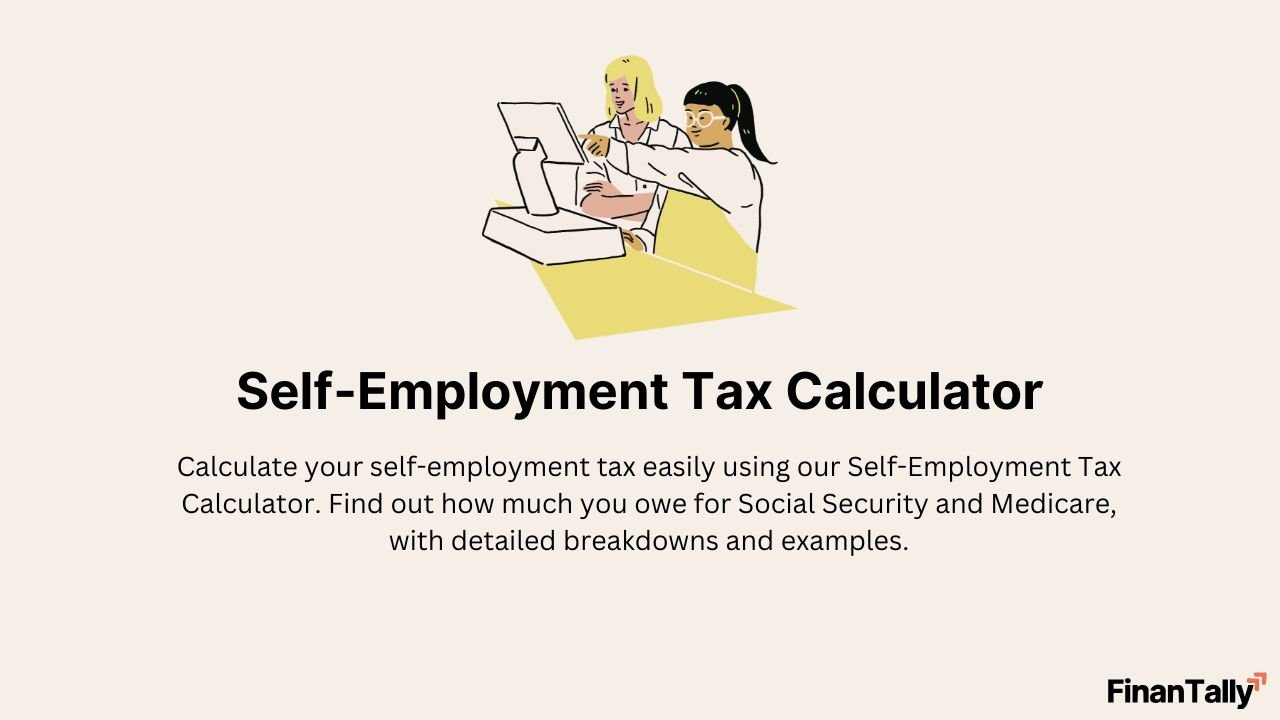Self-Employment Tax Calculator
Calculate your self-employment tax easily using our Self-Employment Tax Calculator. Find out how much you owe for Social Security and Medicare, with detailed breakdowns and examples.
Self-Employment Tax Results
Self-Employment Tax
$0.00
Social Security (12.4%)
$
Medicare (2.9%)
$0.00
Employer Deduction
$0.00
Total Taxable Income
$0.00
After all deductions
About Self-Employment Tax
• Self-employment tax rate is 15.3% (12.4% for Social Security + 2.9% for Medicare)
• Social Security tax applies to first $160,200 (2023) of net earnings
• Medicare tax applies to all net earnings
• You can deduct half of your self-employment tax from your income
• Net earnings = Business income - business expenses
• Taxable income = Net earnings + other income - deductions
Self-employed individuals in the U.S. are responsible for paying both the employer and employee portions of Social Security and Medicare taxes. These are collectively known as Self-Employment Tax. This blog explains how to calculate your tax liability, the formulas involved, and includes a detailed example.
What is Self-Employment Tax?
Self-employment tax is the tax paid by freelancers, independent contractors, small business owners, and gig workers. It includes:
- 12.4% for Social Security
- 2.9% for Medicare
- Additional 0.9% Medicare tax (on income over $200,000 for individuals)
Formula 1: Net Self-Employment Income
To calculate your taxable self-employment income:
Formula 2: Self-Employment Tax (SE Tax)
Only 92.35% of net earnings are subject to SE tax:
Formula 3: Social Security Portion
Social Security tax applies up to a wage base limit (e.g., $168,600 in 2024):
Formula 4: Medicare Portion
Medicare tax has no income limit:
Formula 5: Deduction for Employer-Equivalent Portion
You can deduct half of the SE tax when calculating your adjusted gross income:
Example Calculation
Let’s say your net earnings from self-employment are $80,000 and deductible expenses are $5,000.
Step 1:
Taxable Income = 80,000 − 5,000 = $75,000
Step 2:
92.35% of $75,000 = $69,262.50
Step 3:
-
Social Security Tax = min(69,262.50, 168,600) × 12.4% = $8,588.55
-
Medicare Tax = 69,262.50 × 2.9% = $2,008.61
Step 4:
Total SE Tax = 8,588.55 + 2,008.61 = $10,597.16
Step 5:
Deduction = $10,597.16 ÷ 2 = $5,298.58
Final Output:
- Self-Employment Tax: $10,597.16
- Social Security Portion: $8,588.55
- Medicare Portion: $2,008.61
- Deduction (Employer-Equivalent): $5,298.58

Related Calculators
Help Improve This Tool
Your suggestions help us make better tools for everyone.